MercoPress. South Atlantic News Agency
Economy
-
Tuesday, September 27th 2016 - 08:17 UTC
Accessible Tourism, theme of World Tourism Day 2016
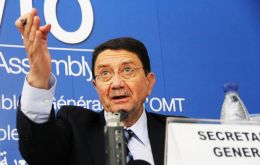
Tourism for all: people with disabilities, senior citizens and families travelling with small children, and sooner or later all citizens will appreciate the advantages of universal accessibility. This is why UNWTO has chosen to celebrate World Tourism Day 2016 on the theme of accessible tourism. Official celebrations will take place on 27 September in Bangkok, Thailand.
-
Tuesday, September 27th 2016 - 08:07 UTC
Deutsche bank in danger zone: shares down 50% this year and sliding

Shares in Deutsche Bank were down sharply after a report that the German government won’t intervene with U.S. officials who are pressing the bank to pay US$14 billion to settle an investigation into its sales of mortgage-backed securities. The bank’s shares closed down 7.5% at 10.55 Euros on Monday after the Friday report from Focus magazine.
-
Monday, September 26th 2016 - 10:56 UTC
US Treasury Secretary on advisory visit to Argentina, Brazil, Colombia and Mexico
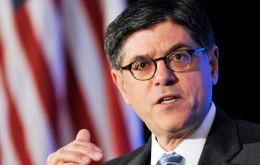
U.S. Treasury Secretary Jacob Lew will urge his counterparts in Argentina, Brazil, Colombia and Mexico to press ahead with economic and fiscal reforms aimed at restoring or strengthening growth, a senior Treasury official said on Friday. Lew will be visiting the four largest Latin American economies this week beginning with Argentina on Monday, recognizing efforts by President Mauricio Macri to reintegrate Argentina into the global economy.
-
Saturday, September 24th 2016 - 20:04 UTC
August FAO Food Price Index at its highest since May 2015; all commodities up except for cereals

The FAO Food Price Index (FFPI) averaged 165.6 points in August 2016, up 3 points (1.9%) from July and almost 7% above the corresponding period last year. The August value of the Index is the highest since May 2015. Except for cereals, prices of all other commodities used in the calculation of the FFPI rose in August, led by dairy, oils and sugar.
-
Saturday, September 24th 2016 - 07:27 UTC
Petrobras sells major gas pipeline which feeds Brazil's core industrialized regions

A consortium led by Canada's Brookfield Infrastructure has signed a deal to buy a controlling stake in a natural gas pipeline system in Brazil from Petrobras for US$5.2 billion. Under the deal, the consortium will acquire a 90% stake in Nova Transportadora do Sudeste S.A. (NTS). Petrobras will retain a 10% stake.
-
Friday, September 23rd 2016 - 11:16 UTC
Petrobras cuts 5-year budget by 25% and will focus on core oil and gas business
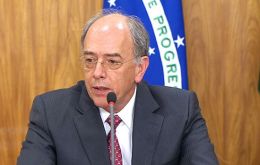
Brazil’s Petrobras announced it will be spending US$74.1 billion over the next five years, 25% reduction on the US$98.4 billion for the previous five years capital expenditure. This is also the company’s lowest five-year budget since 2006.
-
Friday, September 23rd 2016 - 10:55 UTC
An Argentine family to remain above the poverty line needs US$ 820 a month
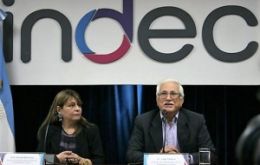
An Argentine average household made up of a couple with two children 6 and 8 years old needs 12.489 Pesos (approx US$ 820) to remain above the poverty line according to the stats office, Indec estimate for the month of August. The same household will have to pay 5.176 Pesos (approx US$ 340) for the Basic food basket, not to drop to indigence.
-
Friday, September 23rd 2016 - 09:32 UTC
Argentina's economy further contracts in 2Q; government insists recovery is round the corner
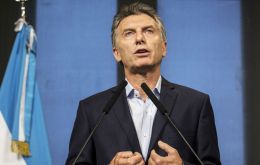
Argentina’s recession deepened in the second quarter as President Mauricio Macri’s efforts to implement free-market reform exacerbated an already flagging economy. GDP fell 3.4% from the same period a year earlier, the largest year-on-year contraction in almost two years, the refurbished statistics agency said in a report published on Thursday.
-
Friday, September 23rd 2016 - 09:28 UTC
Brazilian lawmakers in late night vote fail “to neutralize” Petrobras investigation

President Michel Temer criticized a surprise move by Brazilian lawmakers, including some members of his party and even a cabinet minister, to wipe the slate clean on illegal donations they allegedly received.
-
Thursday, September 22nd 2016 - 22:18 UTC
FAO forecasts higher harvest prospects for maize, wheat and rice

Staple food prices rose in August even as grain prices fell and the outlook for global cereal production improved. The FAO Food Price Index averaged 165.6 points in August, up 1.9% from July and almost 7% from a year earlier. The monthly jump was mostly driven by cheese and palm oil quotations, while those for wheat, maize and rice all fell.
